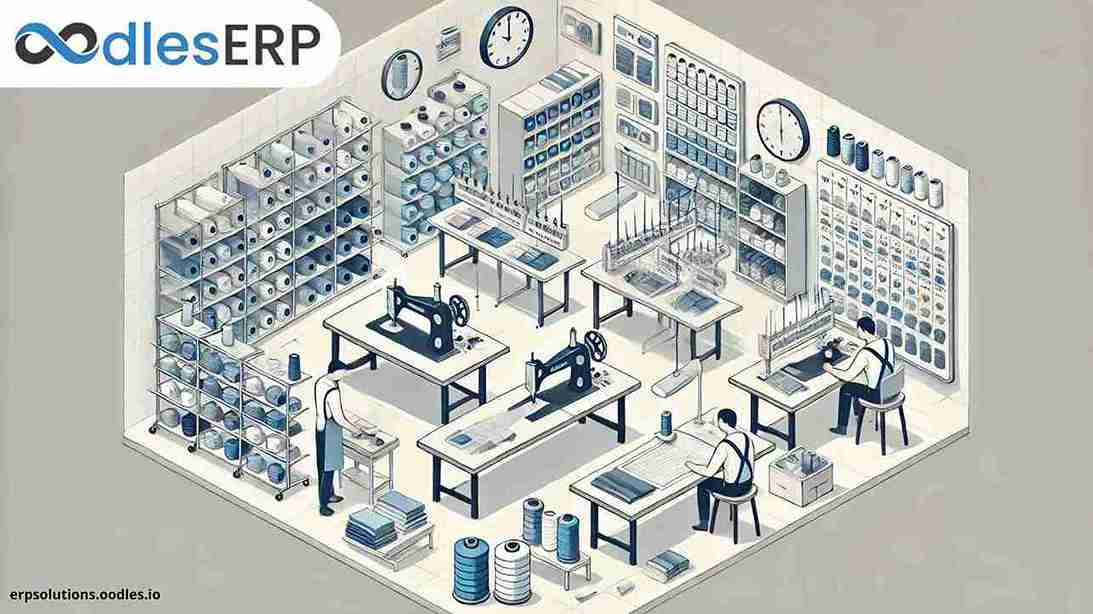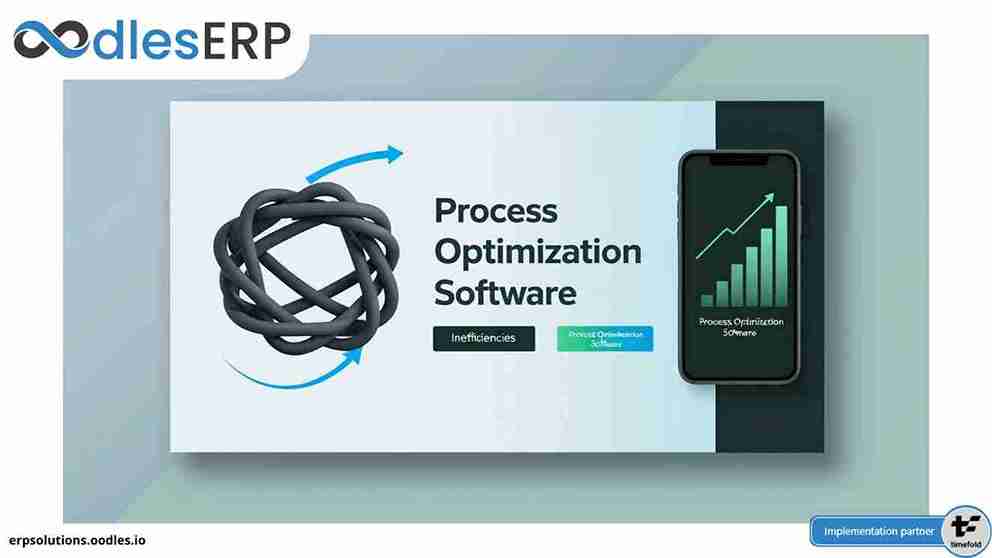In today’s competitive textile manufacturing industry, efficiency is key. Enterprise Resource Planning (ERP) systems play a crucial role in transforming how businesses manage production and inventory. By integrating various operations under one software platform, ERP solutions streamline processes, reduce waste, and enhance decision-making. In this article, we will explore how ERP systems can significantly improve production and inventory management in the textile manufacturing sector.
The Importance of Efficient Production Management in Textile Manufacturing
Textile manufacturing involves complex processes, from raw material procurement to the final product. Each stage in the production line needs to be meticulously managed to ensure timely output, minimal wastage, and cost-effectiveness. Traditionally, textile manufacturers relied on manual processes or disconnected systems, leading to errors, delays, and inefficiencies.
Also, Read Custom ERP Software Development For Inventory Management
ERP systems automate these processes, allowing manufacturers to track every aspect of production in real-time. From managing production schedules to monitoring machine performance and worker productivity, ERP software helps businesses maintain optimal production levels and minimize downtime. This integrated approach leads to more accurate forecasting, efficient resource allocation, and faster turnaround times.

Key Features of ERP in Production Management
- Real-Time Monitoring of Production Processes ERP systems offer real-time tracking of production stages, ensuring manufacturers can monitor progress and address any potential issues promptly. This helps to reduce lead times and maintain a smooth workflow across the factory.
- Automated Workflows By automating routine tasks such as order scheduling, inventory allocation, and resource planning, ERP systems eliminate manual errors and improve the consistency of production operations.
- Production Planning and Scheduling An ERP system allows for precise production planning, helping manufacturers optimize machinery and workforce utilization. It also enables better coordination between different production departments, ensuring materials are available when needed and production targets are met.
The Role of ERP in Inventory Management
Inventory management is a critical component of textile manufacturing. The challenge lies in ensuring that raw materials, in-progress goods, and finished products are available when needed without overstocking or understocking. Effective inventory management reduces holding costs, enhances cash flow, and ensures smooth production operations.
ERP systems streamline inventory management by providing real-time insights into stock levels, order statuses, and production schedules. This helps manufacturers track inventory from the moment raw materials are received until the finished goods are shipped. With automated stock control, ERP systems help eliminate stockouts, excess inventory, and inaccuracies that often result from manual inventory management.
Key Features of ERP in Inventory Management
- Real-Time Inventory Tracking ERP systems provide manufacturers with up-to-date information on stock levels. Whether it’s raw materials, in-progress goods, or finished products, inventory tracking in real-time ensures businesses can make informed decisions about procurement and production.
- Order Management and Demand Forecasting By integrating inventory management with production schedules and sales data, ERP systems offer demand forecasting capabilities. This helps businesses predict future needs based on historical data, ensuring the right amount of inventory is available to meet customer demand without overstocking.
- Automated Replenishment ERP systems can automate replenishment processes by generating alerts when stock levels are low. This ensures that materials are ordered on time, preventing production delays due to stockouts. Automated replenishment also reduces the administrative burden of manual inventory checks.
- Barcode Scanning and RFID Integration Many ERP systems integrate with barcode scanning and RFID technology, allowing manufacturers to easily track and manage inventory. These technologies enable quick, accurate, and real-time data entry, ensuring that inventory data remains up-to-date and reducing human error.
Also, Read The Importance of Inventory Management For eCommerce
How ERP Enhances Efficiency in Textile Manufacturing
The textile industry faces unique challenges that can be mitigated through the effective use of ERP systems. Let’s take a closer look at how ERP improves overall efficiency in the sector.
Improved Decision Making
ERP systems consolidate data from various sources into a single platform, offering manufacturers a 360-degree view of their operations. Decision-makers can easily access real-time data on production, inventory, procurement, and sales, enabling more informed, data-driven decisions. This enhanced visibility leads to improved resource management, cost reduction, and better production planning.
Reduced Operational Costs
With better production and inventory management, ERP systems help reduce operational costs. Manufacturers can identify inefficiencies, minimize waste, and optimize resource allocation. By streamlining processes, businesses can also reduce labor costs, energy consumption, and raw material wastage, leading to significant cost savings.
Enhanced Supplier and Vendor Management
ERP systems help textile manufacturers maintain better relationships with suppliers and vendors. With integrated procurement features, manufacturers can manage supplier performance, track delivery schedules, and streamline purchasing processes. This ensures that the right materials are available when needed, reducing delays in production and improving lead times.
Better Customer Satisfaction
ERP systems improve order accuracy and delivery times by streamlining production and inventory management. When businesses can consistently meet customer expectations for quality and delivery timelines, customer satisfaction increases, which can lead to repeat business and stronger brand loyalty.
Compliance and Traceability
The textile industry is often subject to regulatory requirements concerning environmental impact, product safety, and ethical sourcing. ERP systems can help manufacturers ensure compliance by maintaining detailed records of production processes, raw materials, and supply chain activities. This improves traceability and reduces the risk of non-compliance.
Also, Read ERP Development For Inventory Management In The Apparel Industry
Oodles ERP: Helping Textile Manufacturers Optimize Production and Inventory Management
At Oodles ERP, we specialize in offering comprehensive ERP solutions tailored to the unique needs of textile manufacturers. Our ERP systems are designed to enhance production efficiency, streamline inventory management, and support data-driven decision-making.
Custom ERP Solutions for Textile Manufacturers
We understand that every textile manufacturer operates differently. That’s why we offer custom ERP solutions that cater to the specific challenges and requirements of your business. Whether you are looking to improve production planning, streamline procurement, or enhance inventory control, our ERP solutions provide a scalable platform that evolves with your business.
Seamless Integration with Existing Systems
Our ERP systems seamlessly integrate with your existing business processes and legacy systems, ensuring smooth data flow and reducing the need for costly infrastructure overhauls. This ensures that you can continue leveraging your current systems while benefiting from the enhanced features offered by ERP.
Real-Time Insights and Analytics
With Oodles ERP, you get access to real-time insights and analytics that help you make informed decisions. Our platform provides you with valuable data on production performance, inventory levels, order statuses, and more. These insights enable you to make proactive decisions that optimize resources, reduce costs, and improve overall operational efficiency.
Support for Growth
As your textile manufacturing business grows, our ERP systems scale with you. From managing increased production volumes to handling a larger inventory, Oodles ERP provides the flexibility and functionality needed to support your business expansion. Our solutions also help you adapt to market changes, ensuring you stay competitive in an ever-evolving industry.
Also, Read Reasons Why You Must Integrate Inventory System With ERP
Conclusion
Incorporating an ERP system into your textile manufacturing business can significantly enhance production efficiency and inventory management. By providing real-time data, automating processes, and improving resource allocation, ERP systems reduce costs, increase customer satisfaction, and help businesses stay competitive in a fast-paced industry.
Oodles ERP offers tailored ERP solutions that address the specific needs of textile manufacturers. Our custom ERP solutions are designed to optimize production processes, streamline inventory management, and provide valuable insights that empower businesses to make data-driven decisions. With Oodles ERP, textile manufacturers can achieve enhanced operational efficiency, cost savings, and improved customer satisfaction.









